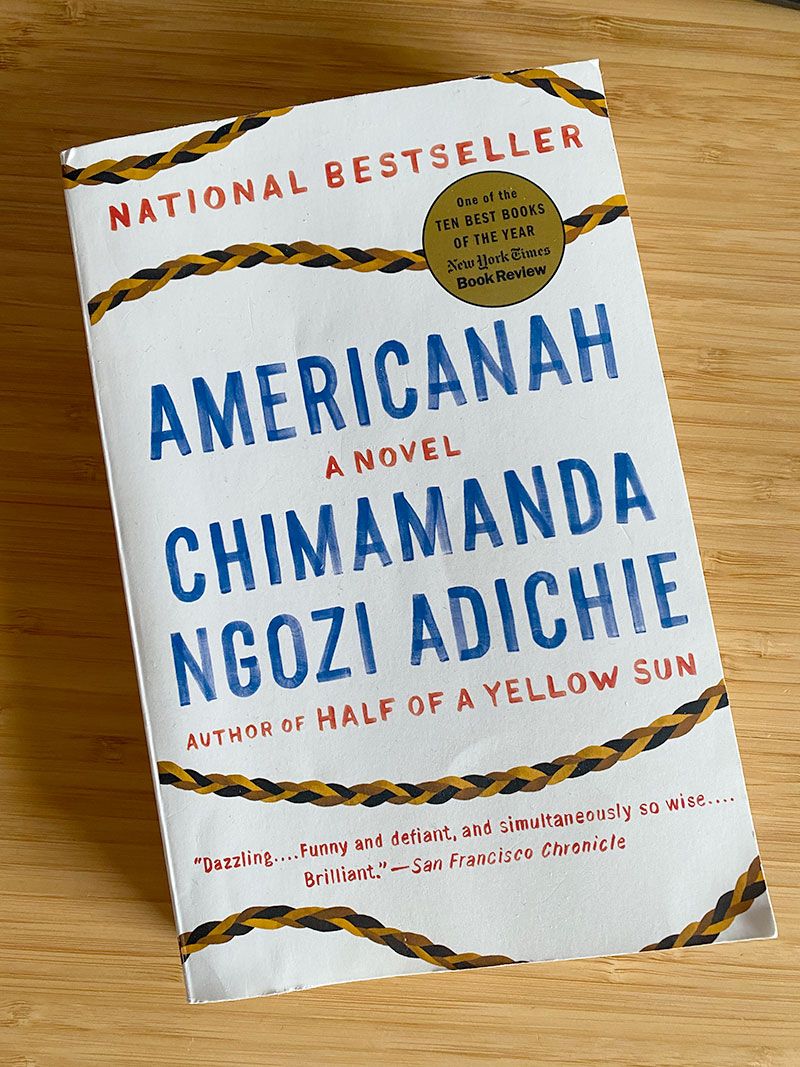Book Review – Americanah

In our work with organizations and especially in our Workshops Via Zoom,
we always suggest strategies, skills and concrete actions that people
can use to counter any automatic judgments or biases that come up.
Because of how our brains categorize people and situations, it’s
important to notice when we’re making a judgment or assumption about a
person. This is where a bias can hang out in our unconscious. However,
just because it might be an unconscious bias, there are actions we can
take to make the biases conscious and counteract them in an intentional
way.
First, a definition – unconscious bias: An unconscious bias is an
automatic assumption or belief about a person or a group of people based
on one’s internal filters and judgments. These beliefs run beneath our
conscious thoughts – they’re in our blind spot – where they can (and do)
influence what we say and what we do.
So, back to the strategies. One of our suggestions is to practice
self-focus by auditing yourself. We call it this DEI audit the “Last 5
List” and it goes like this: List the last 5 books you’ve read, movies
you’ve watched, people you’ve texted, musicians you’ve listened to…
Next, review your lists and consider if there’s a pattern. What does
your list show about your interests, favorites and circle of friends and
acquaintances in terms of gender, race, ethnicity, age? Are there ways
you could make different choices to step outside your usual comfort
zone? Can you choose to watch a movie or read a book that shows life
from a different perspective?
The Last 5 List can give a DEI snapshot of your circles of interest,
friends, culture. Recently, when I did my own Last 5 List, I saw that I
was sitting pretty deep in what I would call the zone that I was
conditioned to feel comfortable in. So, I made the decision to
intentionally push the edges, starting with movies and books. I watched
Raoul Peck’s series, Exterminate All The Brutes (incredibly powerful), I
Am Not Your Negro, Ma Rainey’s Black Bottom, Malcolm X and quite a few
other films and TV Shows (Queen Sugar, I Will Destroy You, MAID) that I
probably would’ve put lower on the list, in favor of my go-to favorites.
These were powerful films and gave me new understandings and feelings
about the history of racism and oppression and where we are now and what
people of color are faced with on a daily basis living in this white
majority society.
I also took my wife’s suggestion to put aside all the Twitter and
politics and news, and I ordered the book she recommended. And that
brings me to Americanah. I got to see the US through the eyes of
Ifemelu, a Black woman who’s come here from Nigeria. Written by
Chimamanda Ngozi Adichie, the book moved me on many levels. As a an
older white guy, I’ve had the privilege to not have to think about race.
I’m the norm – white, heterosexual male. Historically, diversity has
been measured as a difference, a diverse-ness from my identity. Black
people, Asian-Americans, POC have been the non-norm. It’s important to
consider norms and norm compared to what? This is something that Tina
Dyer, my colleague in our Workshops via Zoom, often points out. She has
an entire workshop devoted to considering the impact of assumptions
about norms.
Ifemelu is faced with race every time she steps outside her
apartment, in every interaction she has with work colleagues, social
settings and just walking down the street. This is not new to hear, I’ve
listened to colleagues and friends express this, but through her story,
it hit me again.
From the review at the Washington Post: “Having spent a good chunk of time living in America as an adult and being a hawkeyed observer of manners and distinctions in class, Adichie is uniquely positioned to compare racial hierarchies in the United States to social striving in her native Nigeria. She does so in this new work with a ruthless honesty about the ugly and beautiful sides of both nations.”
I also want to add that Ifemelu is the reason I’m writing a review of
this book. Reading about her blog postings inspired me to be a little
more personal in my own blogging. More to come.
From the review: “Ifemelu’s journey in America is informed by
experiences of race that won’t seem new to black Americans though
they’re new to her. As an African and more specifically as a Nigerian
Igbo she’s not “black” until she comes here. Blaine accuses her of not
being “sufficiently furious because she was African not African
American” and Ifemelu sometimes worries that her blog is only ‘a mild
satire about a world that was anything but mild.’ Race entraps beguiles
and bewilders her because it’s an imaginary construct with actual
consequences. She discovers she’ll be more employable for example when
she chemically relaxes her hair to get that white-girl “swish.”
Ifemelu’s blog entries about such discoveries plot her growth as a
writer.”
Even though Americanah was published years ago and maybe some readers have already read it. If you haven’t yet read it, I highly recommend this book.

